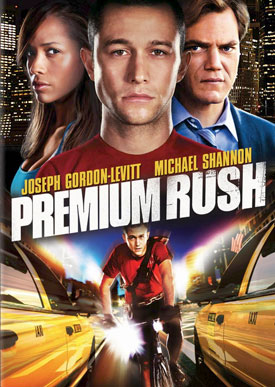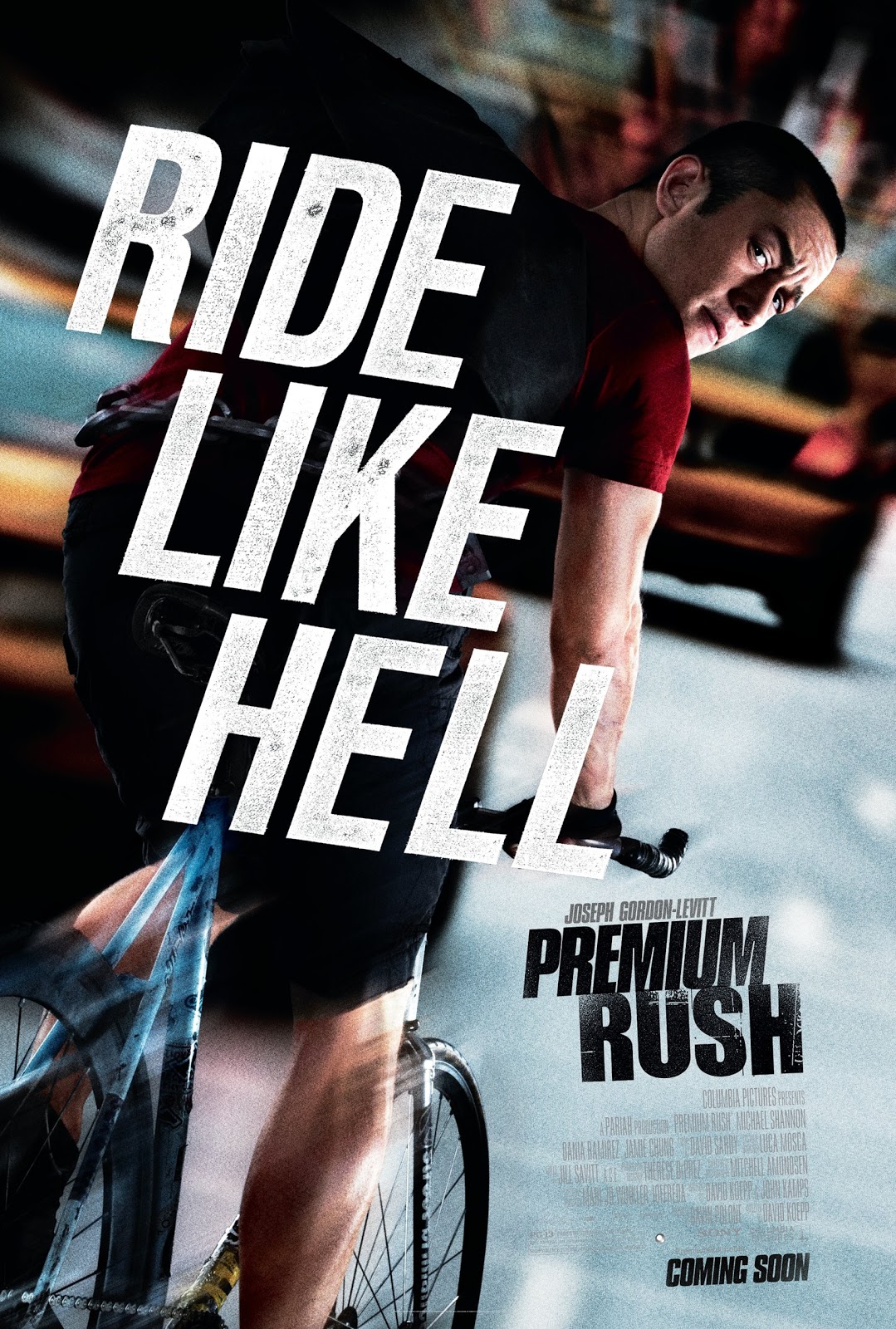

Perhaps even more intriguing was another issue the judge raised.
#Premium rush songs movie#
“The two works differ greatly in many large and small details as well as in their overall mood, style and structure,” says the judge.Īnd as for the claim there was an implied contract between Sony and Quirk, the judge says, “Even assuming a reasonable fact finder could conclude that commonalities among elements found in the novel, the movie and the intervening scripts demonstrate that Premium Rush was created by a process of adaptation from Ultimate Rush, Quirk still lacks evidence that defendants utilized any of his ideas under circumstances giving rise to ‘bilateral expectation of payment.'” The judge eventually got around to analyzing whether there was substantial similarity between Premium Rush, about an adventurous bike messenger being chased by a corrupt police officer, and Quirk’s novel, about a Rollerblading messenger wrongly suspected of murdering a fellow messenger and pursued by members of a criminal enterprise. ( Desny refers to implied-in-fact contracts claims. Judge Seeborg says, “Even assuming Gelfand is factually correct that Premium Rush was ‘adapted’ from Quirk’s novel in exactly the manner he believes occurred, and even assuming that the features he identifies as similarities are evidence of such an adaptation process, it simply does not automatically follow that there is liability under copyright law (or even under Desny).” This ruling could make it quite hard for book authors to sue over what they perceive to be unlicensed film adaptations. VIDEO: ‘Premium Rush’ Trailer: Joseph Gordon-Levitt Races Through Streets of New York With Mysterious Envelope The judge said that might bear on “willfulness” - which would pertain to statutory damages if there was found to be liability on Sony’s part - but it doesn’t address what the judge said was the “threshold question,” which he defined as deciding “whether the end product of the Premium Rush movie is ‘substantially similar’ to Quirk’s novel, as that term is used in copyright law.” “The fundamental flaw in Quirk’s analysis is that he effectively assumes he has a viable claim in copyright and/or under Desny as long as he can prove the movie is an ‘adaptation’ of the novel in the sense described by Gelfand.”īut the judge said that figuring out whether Premium Rush was an adaptation of The Ultimate Rush was the wrong inquiry.

“Quirk offers the expert declaration of Bruce Gelfand to explain the nature and extent of changes that screenwriters often make when adapting an underlying novel into a movie, and to provide an option that Premium Rush bears the hallmarks of having been created from Ultimate Rush through an entirely typical process of adaptation,” writes Judge Seeborg. In a ruling last year, before Premium Rush was released, the judge denied Sony’s motion to dismiss, saying Quirk would need to prove “not only that a copy of the novel originally provided by his agent ended up in the hands but also that each person who accepted it along the way did so with the expectation that payment would be due if the ideas were utilized.”īut now Sony has won the lawsuit on a slightly different ground. Second, because rather than bring a copyright infringement lawsuit, Quirk attempted a tougher-to-defeat claim of breach of implied contract. Quirk at least had a basis for theorizing that Sony’s Columbia Pictures unit had seen either his book or Warners’ screenplays even if he couldn’t directly prove it. An option on the book was purchased by Warner Bros., which commissioned two separate writers to prepare a screenplay but never went forward with a film. ‘Q&A: ‘Premium Rush’s’ Joseph Gordon-Levitt, Dania Ramirez on Stunts, Stitches and Shooting in New YorkĪlthough stolen idea lawsuits are common, this one had a better chance than most for two big reasons.įirst, because Quirk actually had a respectable agent in the business - CAA’s Matthew Snyder, who distributed pre-release copies of Quirk’s 1998 novel, The Ultimate Rush. On Tuesday, a federal judge in San Francisco delivered an answer.


 0 kommentar(er)
0 kommentar(er)
